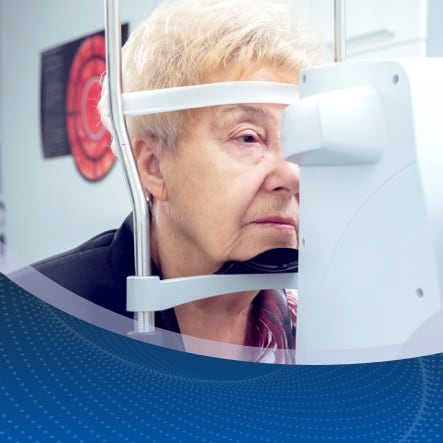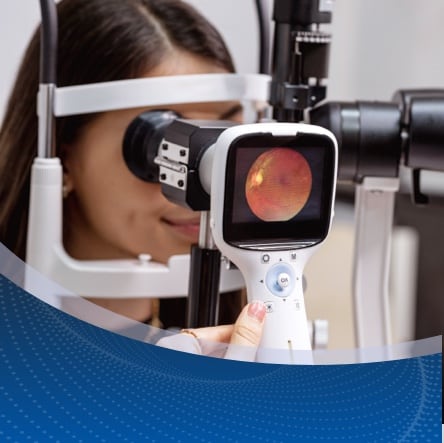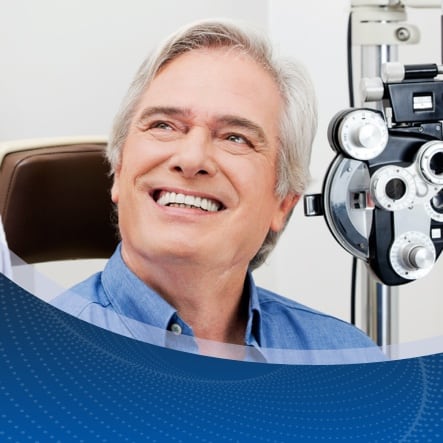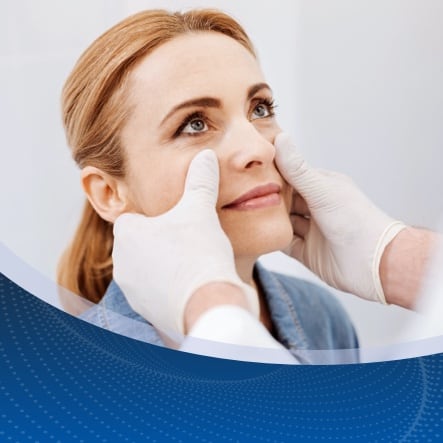Cataract surgery is one of modern medicine’s most common and successful procedures. It can restore your vision and improve your quality of life. However, it is not a one-time event. As a daily ritual, you must take good care of your eyes and attend regular follow-up appointments with your eye doctor in Chesapeake, VA, to ensure safe recovery without complications or infections.
Why Follow-Up Visits Are Important
1. They Can Detect Possible Side Effects Early
Cataract surgery is generally safe and effective and does not need to be redone, but like any surgery, it carries some risks and potential side effects. Some of the most common ones include:
Infection
This rare but serious complication can cause pain, redness, swelling, or discharge in your eye. It can also damage your vision or lead to blindness if left untreated. According to a study by the American Academy of Ophthalmology, the incidence of endophthalmitis, a severe form of infection, after cataract surgery is about 0.04%. However, you can lower this risk by using an antibiotic drop three days before surgery and following proper hygiene practices.
Inflammation
This is your body’s normal response to the surgery, but it can sometimes cause discomfort, sensitivity, or blurred vision. If you notice any of these symptoms or blurry vision after cataract surgery, you can usually manage this with anti-inflammatory eye drops.
Increased Eye Pressure
This can occur from the fluid buildup in your eye after the surgery. It can cause headaches, nausea, or vision loss if not controlled with medication or surgery.
Posterior Capsule Opacification (PCO)
This common condition occurs when the thin membrane behind your artificial lens becomes cloudy over time. It can reduce your vision or cause glare or halos around lights. Doctors can quickly treat this with a painless YAG Laser procedure (Posterior YAG Laser Capsulotomy).
2. They Address Patient Concerns & Guidance
Whether you had a cataract in one or both eyes, post-cataract surgery follow-up appointments provide the perfect opportunity for patients to voice their concerns and questions regarding their recovery. They can discuss various topics with their eye doctor for cataracts, including proper medication management, activity restrictions, and expected vision changes.
Medication Management
After the surgery, your eye doctors will prescribe specific eye drops and oral medications to prevent infection and inflammation and manage pain. Follow the instructions closely, using them as directed. Your doctor will determine the timeline to stop or alter your medication based on your unique healing process.
Activity Restrictions
Patients will receive guidance on the dos and don’ts post-surgery. There could be restrictions on strenuous exercises, swimming, driving, and bending for a specific period. Protective gear like sunglasses, shields, or eye patches may be recommended to shield the eye from dust, sunlight, or accidents.
Vision Changes
Over time, your eye doctor will track your vision and eye pressure. Initial fluctuations or distortions in vision are typical post-surgery and tend to improve with time. Some patients may require glasses or contact lenses for near or far distances. Your eye doctor for cataracts will assess and prescribe the best corrective options for you.
3. They Monitor Medication and Healing Progress
A follow-up appointment is scheduled for the day after your cataract surgery to check your vision and ensure the Intraocular Lens (IOL) implant is correctly centered without signs of infection. During this time, a technician reviews your prescribed eye drops and provides detailed usage instructions.
Your healing progress and medication adherence are closely monitored. The doctor may adjust the dosage or treatment based on your unique recovery. A second follow-up is set three weeks post-surgery to confirm your eye has healed as expected. Femtosecond laser-assisted cataract surgery has a high success rate of over 90%, with most patients noticing improved vision within hours.
How Many Follow-Up Visits Will You Need?
After cataract surgery, follow-up appointments are crucial to ensure your eye is healing properly. Most patients will have about three to four post-op visits:
- First Day (24–48 Hours Post-Surgery): You’ll see your surgeon the day after (or two days after) surgery. They will check for any immediate issues such as infection, excessive inflammation, or high eye pressure. Your eye medications (like antibiotic and anti-inflammatory drops) might be adjusted based on this exam.
- 1-Week Follow-Up: About a week later, you’ll have another appointment. The doctor will examine your eye to make sure it’s healing on schedule. They will test your vision and ask about any symptoms. If everything looks good, you may be cleared to slowly resume some normal activities (though you should still avoid strenuous exercise and heavy lifting for a bit longer).
- 1-Month Follow-Up: At roughly one month post-surgery, your eye should be mostly healed. The ophthalmologist will likely measure your vision to see if you might need glasses or an updated prescription. If your vision has stabilized, you may get a new glasses prescription at this visit. This is often the final required follow-up if recovery has gone smoothly.
- 3-Month Follow-Up (if needed): Not everyone needs a three-month check, but if there were any complications or if your doctor wants to ensure everything is absolutely stable, you might have an additional visit a few months after surgery. By this time, any lingering minor issues can be addressed and resolved.
Keep in mind that this schedule can vary depending on your individual case and your surgeon’s preference. Some patients might have more frequent check-ins, especially if they experience any issues during recovery.
Frequently Asked Questions About Post-Op Visits
How Long Will I Need to Keep Going to Follow-Up Appointments After Cataract Surgery?
Most people finish their required cataract surgery follow-ups within about a month. Typically, you’ll have a next-day check, a one-week check, and a one-month check. If all is well at your one-month visit, your surgeon might not need to see you again until your regular annual exam. However, if there are any issues (for example, if your eye pressure is high or your eye is slow to heal), you may need extra visits beyond the first month.
What If I Accidentally Miss One of My Follow-Up Appointments?
It’s best not to miss any of your scheduled follow-ups, as they are important for catching problems early. But if you do miss an appointment, call your eye doctor’s office as soon as possible. They will likely reschedule you for the next available day. Don’t just wait until your next planned visit, because a missed check-up means a potential issue might go unnoticed longer than it should.
Will I Need New Glasses After My Cataract Surgery?
Many patients find their vision is much clearer after cataract surgery, especially for distance vision, if they choose a distance-focused lens implant. However, you might still need glasses for reading or for fine-tuning your vision. At your one-month follow-up, your doctor will test your eyesight; if your vision has stabilized, they will give you a new glasses prescription at that time (if you need one). Some people end up only needing reading glasses, while others might still use progressives or bifocals, depending on the type of intraocular lens they received and their personal vision goals.
Cataract Recovery Starts With You
Your cataract journey starts with you. If you need cataract surgery in Chesapeake, VA, book a consultation with Griffey Eye Center for the safest, most personalized, and most comfortable experience by experienced ophthalmologists.
Read About: CAN CATARACTS COME BACK AFTER SURGERY?
**Please note that the suggestions provided in this blog are for general informational purposes only and may not be suitable for your specific insurance plan and cataract needs. Consulting a qualified healthcare professional for personalized advice and treatment is important.













